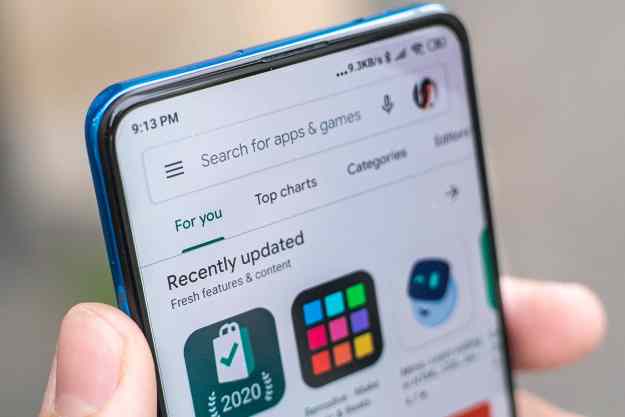
“We’ve been thinking up ways to make the experience even more helpful,” Google wrote. “That’s why we’re rolling out an update to help you stay organized and in the know about things that matter to you.”
The updated Google introduces two new sections: “the feed” and “upcoming.”
The feed comprises interests like sports, news, and entertainment. Google describes it as “an ongoing and updated” window into the things you care about, a hub tailored to your personal likes and interests. It guesses at interests like sports teams and music from your Google searches, or draws from suggestions added by tapping the Customize button in the settings menu. A new card, rolling out first to U.S. folks, suggests topics likely to pique interest.

Upcoming, the second section, contains information of a more personal nature. It’s best compared to an itinerary: a place where you’ll find details about upcoming flights, your daily schedule, travel times for the commute between work and home, the status of packages you might be expecting, imminent bills, and more.
“With this latest refresh of the Google app, a single tap will load your life’s interests and updates,” Google wrote. “We hope these go-to guides will help you stay organized and on top of things you care about.”
The redesigned Google app begins rolling out on December 6 to Android, and “soon” to iOS.
The changes come as Google unifies its core services under a single umbrella: the Google Assistant, a catchall brand for AI-driven features. Already, the Assitant plays a central role in the Mountain View, California-based firm’s Allo messaging app and Google Home speaker. It processes pictures in the Google Photos app for iOS and Android. And it may perform tasks in Google’s Inbox mail client, rumor has it.
But the Assitant is more than just a brand: it represents an evolution of Google’s core technologies. In Allo, it’s capable of suggesting text message replies. As part of Google Home, it considers factors like preferences and context in its responses. It even has a personality — Google worked with an ex-Pixar animator to ensure the Assistant “had character” and “showed vulnerability.”
All that technology may not be immediately evident in the Google app’s evolution, but it’s likely only a matter of time before it manifests more obviously. For folks who aren’t opposed to a little friendly AI, that’s a good thing.
Editors' Recommendations
- Google Messages vs. Samsung Messages: Which app should you use?
- Google just redesigned one of its biggest apps, and it’s bad
- What is Google Assistant? Here’s the guide you need to get started
- Google’s Android monopoly finds its biggest challenge, and Apple might be next
- Ads won’t ruin your iPhone’s App Store — they may actually improve it


